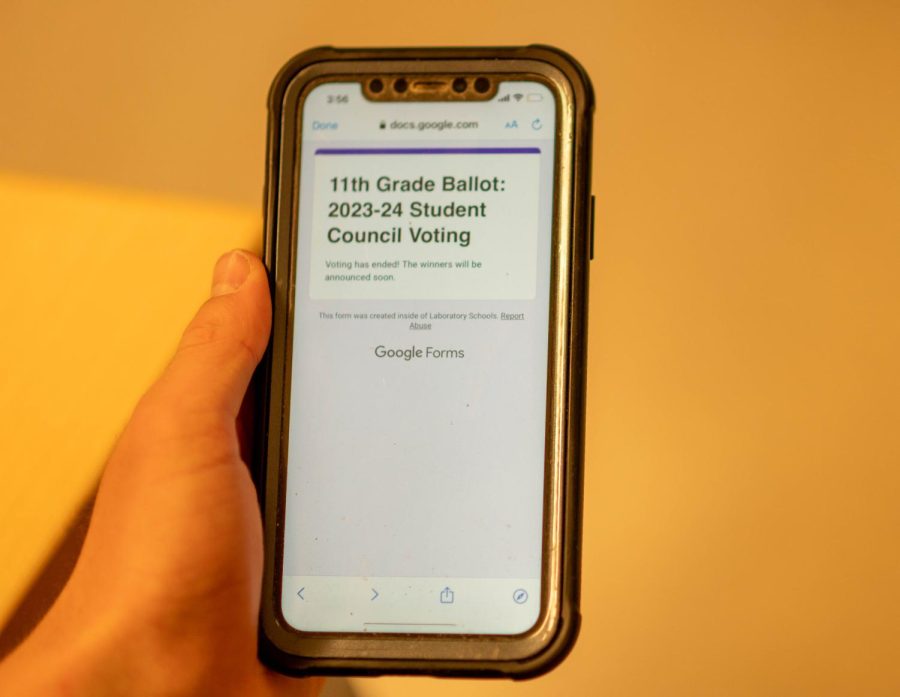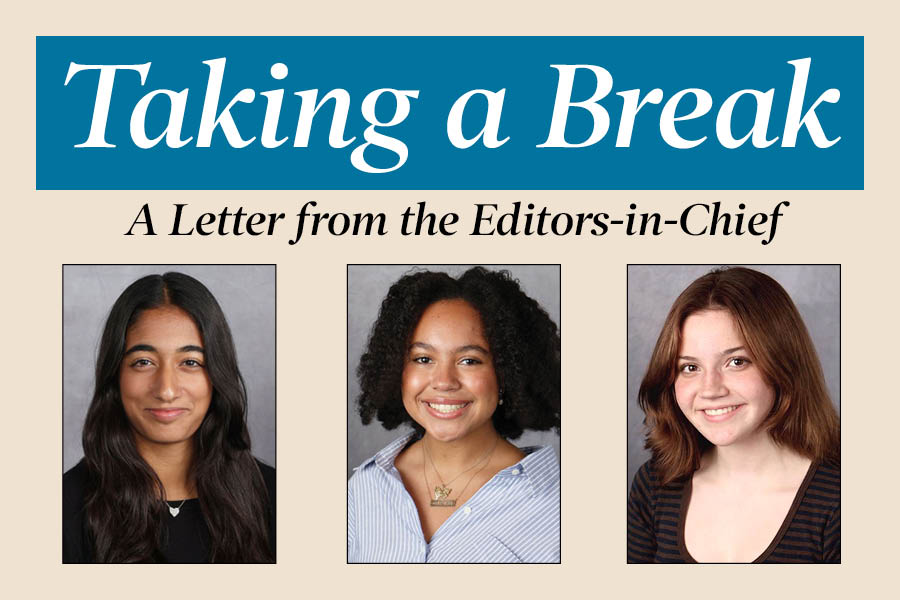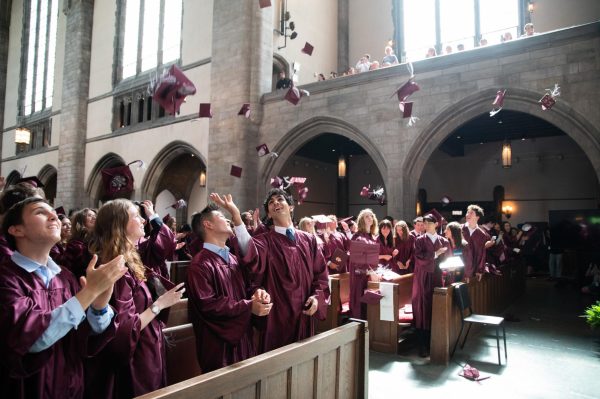Election circumstances spark concern, feelings of distrust
Students criticize lack of transparency over deductions, breach, vote margins
A student views their ballot confirmation after voting in the May 1 Student Council election.
May 29, 2023
Unauthorized vote changes to the April 28 Student Council election, minimal information surrounding the breach, and a lack of transparency around vote margins and penalties have caused mixed reactions among students who want more information and say their concerns aren’t being addressed by Student Council or the administration.
Many students were confident or somewhat confident in the integrity of elections before the April 28 election, according to an unscientific, anonymous poll run by the U-High Midway. Sophomore Taylor Landry had never questioned the integrity of the election and assumed transparent results.
Taylor said, “I have never once questioned the security of the site because who would want to hack the Student Council elections?”
Before the unauthorized vote changes, sophomore Oscar Kasthuri said he had confidence in the election system, but after, he distrusts the process.
“I thought the lack of transparency was not good at all,” Oscar said, adding that the students and administrators in charge could have done a better job to show the votes and what went wrong in the system.
Oscar said, “I definitely don’t trust the way the election is run.”
James McCullen, 2022-23 all-school secretary and an unsuccessful candidate for all-school president, believes there are several reasons why the student body has low confidence in election integrity.
“It seemed quite clear to me that there was a lot that was not being released about what had really happened with the election, and I think that certainly added to a growing distrust that most students have in Student Council elections,” James said. “It builds upon other issues where there doesn’t seem to be much transparency or accountability in how elections are governed.”
Election procedures give the non-returning executive board members the authority to settle election disputes, complaints and rule violations. The decisions the board makes are not subject to review by the student body and are kept confidential.
“In the past, it seemed quite clear that they were trying to keep it confidential as possible — just between the executive board and the one or two people immediately part of the situation,” James said, “but I think what should be done is a lot more accountability in that process.”
According to an email to the Midway from Dean of Students Ana Campos, several complainants were sent to the non-returning executive board members, who were tasked to review each case and determine whether a penalty should be enacted. In the 2023 election, one candidate received a violation and penalty of a 10% deduction in votes.
“Based on the facts that they were able to discern, they determined if the alleged actions were true, and if so, if they were a violation of the campaign rules,” Ms. Campos wrote. “If they determined that the actions were a violation, they then determined if any penalty should be applied.”
Fermi Boonstra, 2022-23 all-school president, said the board looks at the exact language on the election guidelines and at the cases to determine whether a warning is sufficient or to enact a vote deduction penalty.
“We see if it violates the language, does it violate something in the election guidelines that was clearly stated, and if it does, we discuss potential outcomes,” Fermi said. “Sometimes it’s violated, and we don’t give a punishment. It really varies case by case.”
According to Graham Robbins, 2022-23 all-school vice president, the 10% penalty is used for more serious offenses, and the executive board believes it provides the appropriate disciplinary action, without destroying a candidates’ campaign.
“If it was an egregious violation of the election guidelines then it would definitely be an option to remove a candidate from the election,” Graham said. “I think the reason it’s set at 10% is because we don’t have to deliberate a 10%, 15% or 20% deduction in votes. The number is small enough to where if a candidate had a strong showing of support among the student body, they would definitely still be able to win the election.”
Either way, ninth grader Zoe Alphonse believes that if a 10% deduction penalty is enacted, it is important for student voters to know at the time of the election.
“As I am a part of the student body, I want to know if the people I vote for are having points deducted,” Zoe said. “It might bring even more transparency to the voters and make the election more trustworthy.”
Graham suggests the next executive board work to release exact voting numbers. This wasn’t enacted previously due to concern for the candidates’ well-being.






















